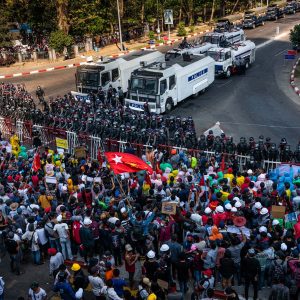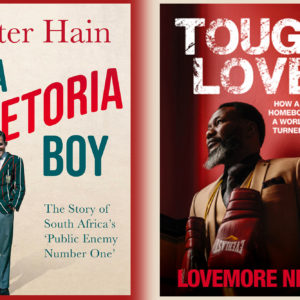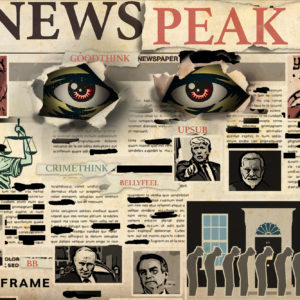Death by hanging in the real world
In Text Messages this week, the literary deaths of Alan Paton’s Absalom Kumalo and George Orwell’s ‘one mind less’ come to life in Myanmar with the junta’s ominous declarations.
Author:
9 June 2022

Should the Myanmar junta carrying out the death sentence on four of its opponents concern us more than whenever capital punishment is meted out? No and yes: no if we oppose such executions to begin with; yes if we learn a little more about these proposed “judicial” killings.
Myanmar has not seen a single judicial execution since 1990, almost unbelievable given the tyranny of successive military dictatorships. One could, of course, argue that the army murdering Burmese citizens on city streets and in villages has done away with the need for formalised, “legal” executions. Now, however, the junta has announced it will put to death Phyo Zeya Thaw, a former member of Parliament from Aung San Suu Kyi’s National League for Democracy party (more accurately, ex-party); one of the most globally known Burmese activists, Kyaw Min Yu, more widely known as Ko Jimmy; and two men who killed a woman they alleged was a junta informant.
What makes these declarations of death more ominous is that although scores of anti-junta activists have been given the death penalty since the military re-established power last year, not one has been executed. Phyo Zeya Thaw was charged with organising ambushes of the military and Ko Jimmy with – wait for it – “inciting unrest by social media posts”. Phyo Zeya Thaw is not first and foremost a politician but rather a hip-hop artist whose conscience turned him to politics. In that double guise he is about as prominent an anti-junta personality and leader as can be found. Ko Jimmy was a leader of the celebrated student revolt of 1988.
Related article:
The two appealed against their sentence, handed down by a military tribunal, then requested an amendment of it, but the “court” declined both overtures. So it was that Myanmar’s deputy information minister, Zaw Min Tun, told Agence France-Presse on 3 June that they “will be hanged according to prison procedures”.
There is more heartbreak. Ko Jimmy was a longtime friend of the late South African activist, journalist and author Hugh Lewin and his partner, journalist and teacher Fiona Lloyd. Jailed from 1964 to 1971 for his resistance activities against the apartheid regime, Lewin naturally empathised with and admired Ko Jimmy’s struggles against monstrous injustice. Lloyd will be devastated by this news of Ko Jimmy.
Familiar justice
South Africa is no stranger to the death penalty by hanging. In what remains one of our literature’s greatest books – despite later contrary opinion, of which more below – we read: “I sentence you, Absalom Kumalo, to be returned to custody, and to be hanged by the neck until you are dead. And may the Lord have mercy upon your soul.”
The judge and the court rise while the condemned man, a woman and an old man cry, sob and wail. And Alan Paton ends this moment from Cry, The Beloved Country with: “No one calls for silence, though the Judge is not quite gone. For who can stop the heart from breaking?”
It has become fashionable in the 74 years since Cry was published to deride it as the product of a white liberal sensibility divorced from the thoughts and feelings held by most people at the time of its writing. Nadine Gordimer is now similarly dismissed, but the loss in her case and Paton’s is only to the dismissers.
Related article:
The casual or reflex rejection of Cry fails to register its subtitle – indeed, how many have ever noticed it? – which declares “A story of comfort in desolation”. Paton’s novel is not liberal or Christian or humanist or socialist or communist; it is all of those and none of those and in the end it is merely but triumphantly human, and in that a transcendent achievement.
Part of the opprobrium that has descended on Cry is political, not literary, and resides in the (mis)understanding of liberal in the South African context, with many latter-day armchair critics conflating the term with the Democratic Alliance, an illiberal outfit. It would, though, be wise to recall that the governing National Party banned the Liberal Party, of which Paton was president, outlawing it under the Prohibition of Political Interference Bill. It was disbanded in May 1968 – a time of worldwide revolts against monolithic authority – but Paton had already had his passport confiscated in 1960. A smidgeon of history always helps with misconceptions.
Beauty and terror
That the Left has misgivings over Cry is understandable. It is too human: it is about people, not ideas; the concrete, not the abstract; art, not theory; literature, not ideology; profound heart, not alienating pointy-headedness. Chiefly, it does not hold out the prospect of an argument to be won although the war is lost.
In the last meeting between the reverend Stephen Kumalo and his son Absalom, the youth says, “I am afraid of the hanging … I am afraid of the hanging.” A year before he died in 1988, Paton wrote a note to the 1987 edition of Cry. There, he quoted what he had written about the novel in another of his books, For You Departed (1969):
Related article:
“It is a song of love for one’s far distant country, it is informed with longing for that land where they shall not hurt or destroy in all that holy mountain, for that unattainable and ineffable land where there shall be no more death, neither sorrow, nor crying, for the land that cannot be again, of hills and grass and bracken, the land where you were born. It is a story of the beauty and terror of human life, and it cannot be written again because it cannot be felt again.”
Such thoughts may run through the minds of all facing death. And, as George Orwell wrote in his short nonfiction piece A Hanging (1931), about an execution in what was then Burma:
“It is curious, but till that moment I had never realised what it means to destroy a healthy, conscious man. When I saw the prisoner step aside to avoid the puddle, I saw the mystery, the unspeakable wrongness, of cutting a life short when it is in full tide. This man was not dying, he was alive just as we were alive … He and we were a party of men walking together, seeing, hearing, feeling, understanding the same world; and in two minutes, with a sudden snap, one of us would be gone – one mind less, one world less.”



